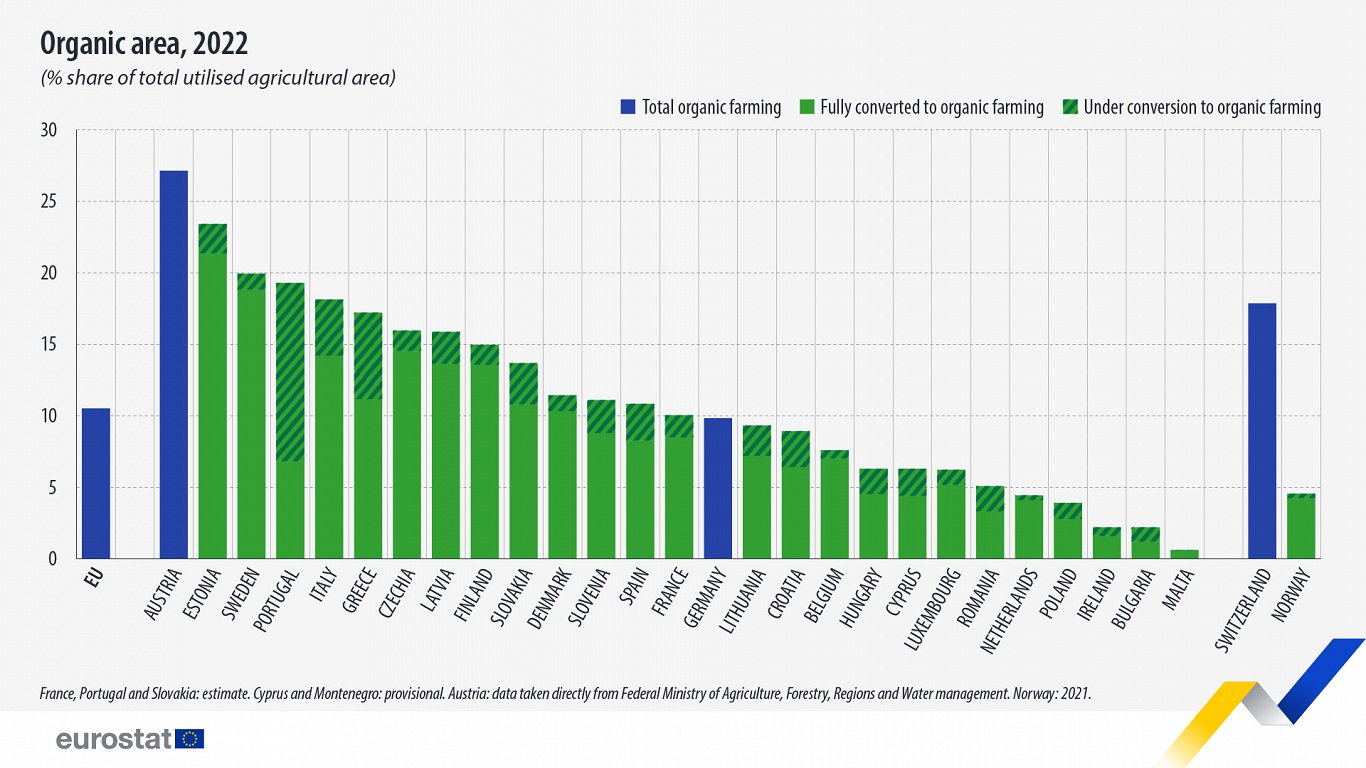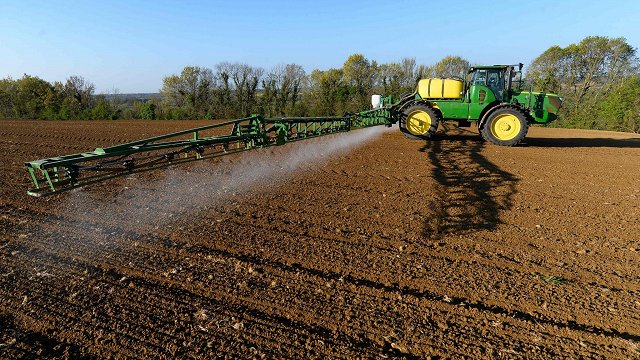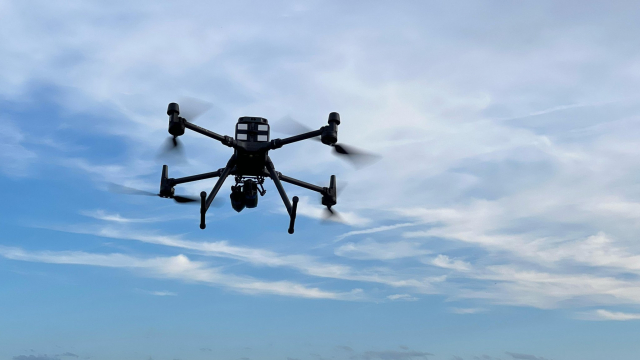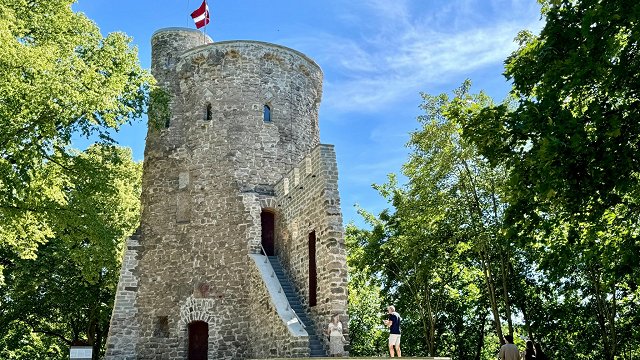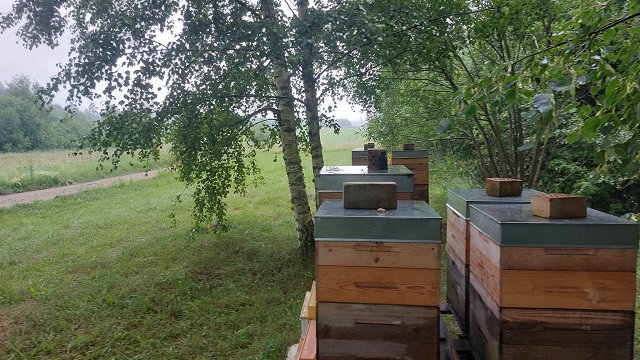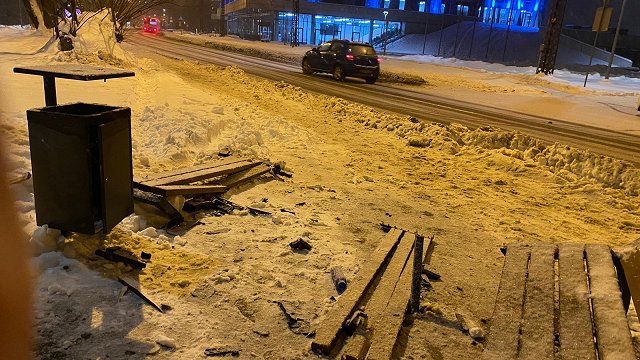The area used for organic agricultural production in the EU is on the increase, and in 2022 reached 16.9 million hectares (ha), up from 15.9 million ha in 2021 and 14.7 million ha in 2020. In 2022, the area used for organic farming was equivalent to 10.5% of the total utilised agricultural area (UAA) in the EU.
Between 2012 and 2022, the area used for organic farming increased in almost all EU countries, including Latvia. The sharpest rates of expansion in this period were in Croatia (+306%), Portugal (278%) and Bulgaria (182%).
The highest shares of organic farming areas within the total UAA were in Austria (27%), Estonia (23%) and Sweden (20%). Latvia ranks 8th out of the 27 EU member states with 15% – creditable and better than the average but by no means leading. Latvia ranked 6th for organic cereals production and 7th for organic vegetables production.
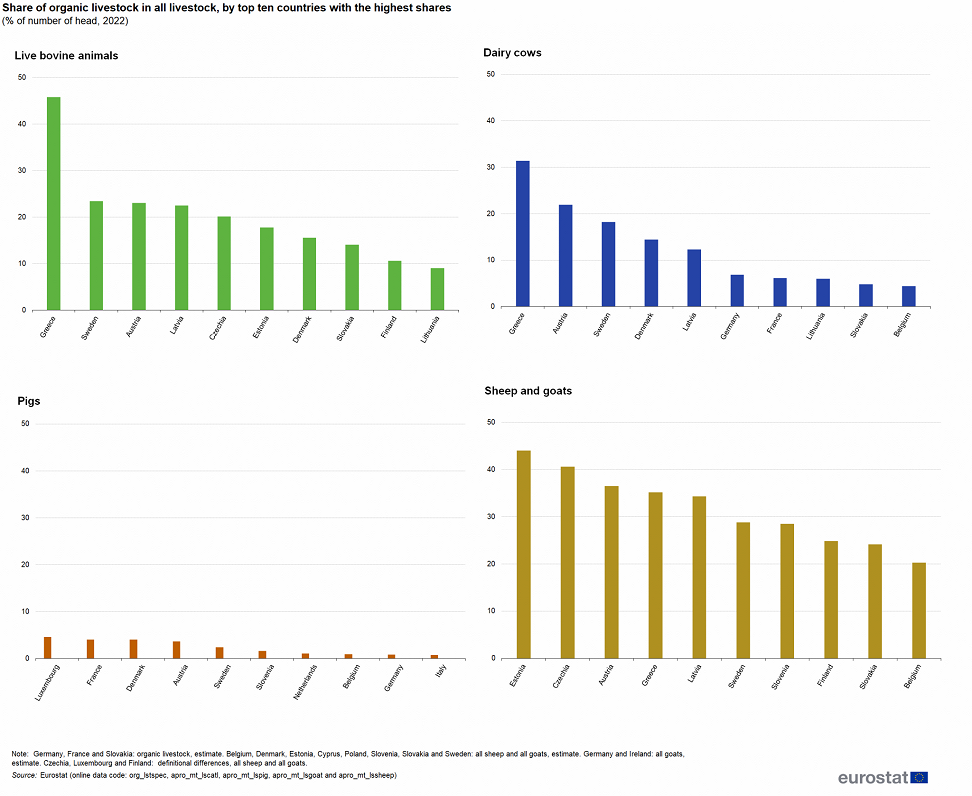
For livestock it does rather well, scoring 5th place for organic dairy cows, and another 5th place for sheep and goats, while for 'live bovine animals' it is 4th.
From 2012 to 2022 Latvia's share of organic farmland rose 59% from 195,000 hectares to 312,000 hectares.
By contrast, the share of organic farming was below 5% in 5 EU countries in 2022, with the lowest shares in Malta (under 1%), Bulgaria and Ireland (both 2%).
